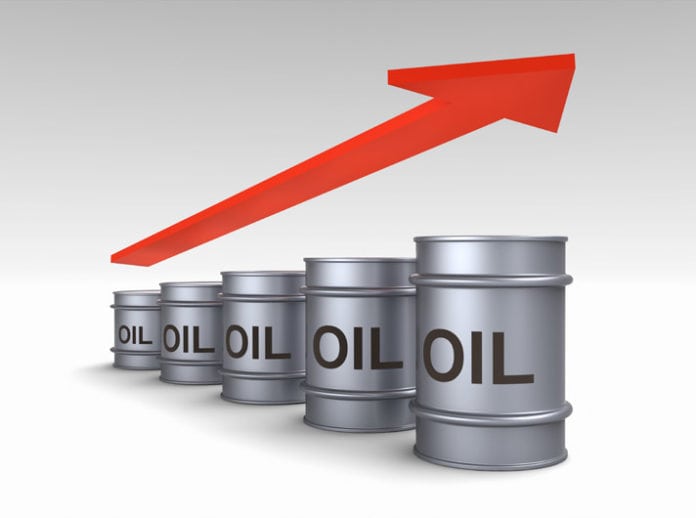If you take look at the price of oil over the past few years you will notice that it is always changing.
For example, in April 2020 the price of oil dropped below zero but since then it went up to almost $100 per barrel.
If you are not familiar with barrels, it is just a unit of measurement used for selling oil.
One barrel is equivalent to 42 gallons or approximately 159 liters.
So what are the main reasons for such big fluctuations in oil prices?
As you probably already know the price of almost any product depends on supply and demand and oil is no different.
However to really understand how supply and demand affect oil prices we need to take a closer look.
Related: What Is the Difference Between Brent And WTI Crude Oil?
What Factors Determine the Price of Oil?
1. The Production Costs
One of the first factors affecting the price of oil is how much it actually costs to get the oil out of the ground.
As the technology and production efficiencies are improving, the costs of getting oil out of the ground are decreasing.
One good example of technological transformation that allowed companies to produce more oil at a lower price is hydraulic fracturing.
If you are not familiar with hydraulic fracturing, it is the process of injecting a mixture of water, sand, and chemicals into the well to create fractures in low permeability formations like shale allowing hydrocarbons to flow more easily towards the wellbore.
2. The Transportation Costs
The price of oil also highly depends on where the oil is located and how easy it is to get it to the consumer.
In locations with a lack of pipelines or any other ways to efficiently move it, the price of oil is usually lower.
One good example is Canadian oil which often experiences pipeline capacity issues and is sold at the discount in comparison to WTI.
Related: How is Crude Oil Transported?
3. The Type of Oil
Usually lighter oil will be sold at a premium in comparison to heavier oil.
Oil density is usually classified using API gravity.
Lighter oil has higher API gravity than heavy oil.
For example, both Brent and WTI have an API gravity of around 40 while Western Canadian Select has a gravity of 20.
API Gravity = (141.5/SG) -131.5
SG – specific gravity of oil = density of oil/density of water
The reason why light oil is priced higher is becasue you can make more gasoline and diesel from it than from a barrel of heavy oil.
Another factor that affects oil prices is whether it is sweet or sour.
Sour oil contains sulfur and is sold at a discount because it is more expensive to refine than sweet oil.
Related: What is the Difference Between Sour and Sweet Crude Oil?
4. Demand
Demand for oil varies from country to country. Usually, first-world countries use much more oil than developing countries.
The amount of oil used is also affected by the weather. During cold winters and hot summers, more oil is used to either warm or heat the houses.
The state of the economy also plays a role in the price of oil.
When the economy is booming the oil prices go up becasue the industry is busy and requires a lot of oil to keep the economy going.
On the other hand, during the recession, the demand for oil drops and so does its price.
It is likely that in the future renewable energy will significantly decrease the demand for oil but as of right now, it is not a significant factor.
Related: Why Are Gas Prices So High?
5. Supply
When there is more oil produced than consumed its price drops.
That’s what happened in April 2020 when there was so much oil available that there was not enough space to store it and that’s why the price dropped below zero.
Geopolitics can also affect the price of oil because it can affect the oil supply.
For example, if there is a conflict in the oil-producing country or there is a fear that conflict might affect the oil supply becasue of damage to oil infrastructures such as pipelines or tankers prices can go up pretty fast.
You can usually see these price spikes whenever there is some type of conflict in the Middle East.
Organizations like OPEC (Organization of the Petroleum Exporting Countries) can also affect the price of oil by artificially decreasing the supply of oil to lift the prices like it was done in 2018.
OPEC is a union of oil-producing countries that control about 40 percent of the world’s oil supply.
To affect oil prices, OPEC sets production quotas for its member countries in order to decrease or increase the oil supply.
Natural disasters can also have an effect on the oil supply by affecting oil production.
For example, a strong hurricane in the Gulf of Mexico might temporarily decrease oil supply and increase oil prices.
Lastly, developments in technology can also significantly increase the oil supply.
One example that we already discussed is hydraulic fracturing which helped to significantly increase oil production from the oil fields that were not economical before.
6. Market Speculations
Similar to the rest of the commodities oil is affected by speculations in the market.
Fears and rumors can drive the price of oil in both directions.
Read next: Who Are the Top Oil Producers in the World?
